Treasurer reveals biggest surprise of federal budget
The government has unveiled cost of living relief in its budget but it has been slammed as a “betrayal of the people”.
Prime Minister Anthony Albanese and Treasurer Jim Chalmers handed down their second budget on Tuesday night, with Labor delivering the country’s first surplus in 15 years.
The turnaround has been driven by high commodity prices, a strong jobs market and skyrocketing immigration.
But the budget is expected to quickly return to the red due to increasing costs of welfare payments, the NDIS and aged care.
Critics say the budget hasn’t delivered enough for Australians struggling with skyrocketing rents and rising living costs, with Greens leader Adam Bandt branding it a “betrayal of the people”.
The Treasurer rose in the House of Representatives and delivered his budget speech at 7.30pm.
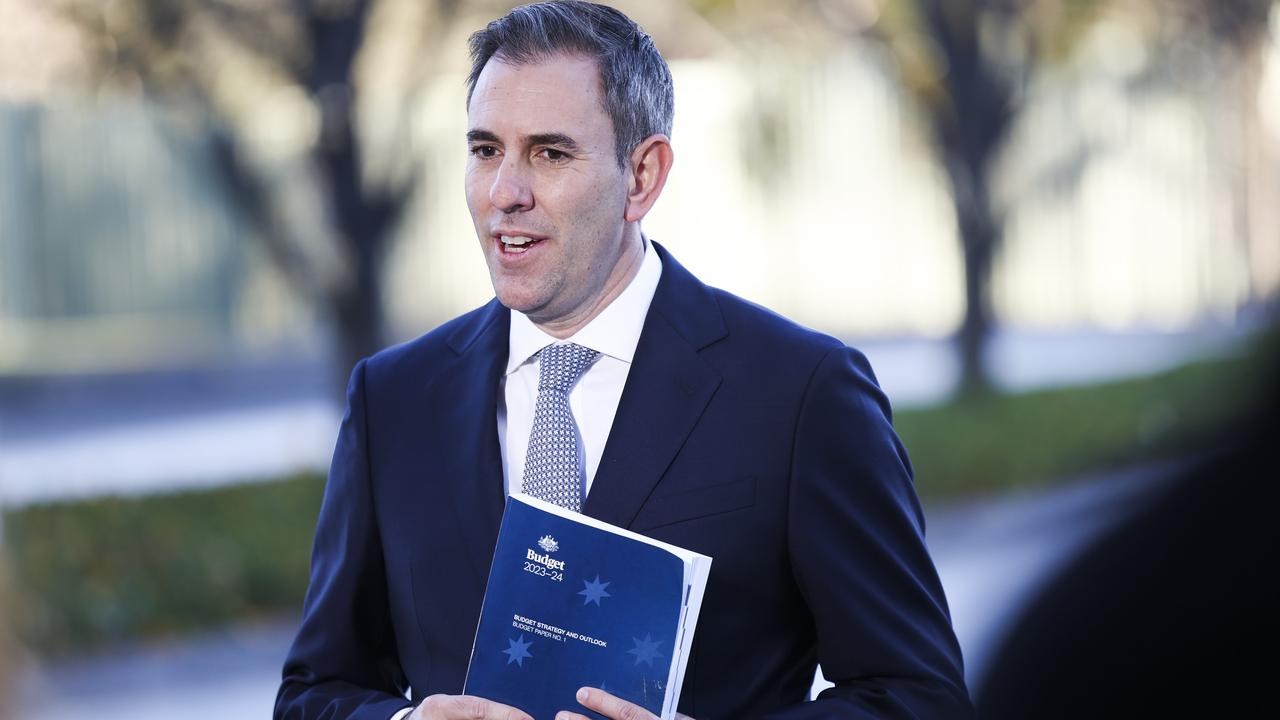
RELATED STORIES:
Wealthy Australians score big time
Budget calculator: Find out what you get
Budget’s winners and losers revealed
The budget winners revealed including Medicare, renters and jobseekers
Treasurer Jim Chalmers has revealed the “centrepiece of this budget” is tripling the Medicare bulk billing incentive – delivering a $3.5 billion boost that will help GPs provide free consultations to around 11.6 million eligible Australians.
“All of this will help take pressure off our public hospitals and emergency departments, still feeling the strain of a once-in-a-century pandemic and it will ensure that, for millions of people, the quality of your healthcare is guaranteed – not by your credit card but by your Medicare card,” he said.
There has also been a $40 per fortnight increase or $2.85 a day for JobSeeker recipients as well as those on Youth Allowance, Austudy and other income support payments.
“Helping to deliver a much-needed $4.9 billion boost in support to around 1.1 million Australians looking for work, studying or doing apprenticeships,” he said.
More than 52,000 Australians aged 55 and over will benefit from the extension of the eligibility of a higher rate in the JobSeeker payment.
From September those who have been on the welfare payment for nine or more continuous months will receive an extra $90 per fortnight. This was previously only offered to those aged 60 and over.
“We’re going further to help the single biggest group of Australians on JobSeeker – those aged 55 and over. Until now, people aged 60 and over and on payments for a long time have received a higher rate in recognition of the additional barriers that they face finding work. But the truth is, is gets more difficult earlier than that,” Mr Chalmers said.
“The majority of people aged 55 and over on JobSeeker are women, many with little to know savings or superannuation and who are at risk of homelessness. So tonight, we’re extending the extra support for those aged 60 and over to include Australians 55 and over.”
The government is also increasing the maximum rates of Commonwealth rent assistance by 15 per cent, providing up to $31 extra a fortnight for people renting in the private market and community housing. Mr Chalmers said it was the largest increase in 30 years.
The government are also delivering up to $3 billion in direct energy bill relief for eligible households and small businesses, co-funded with the states and territories.
This means more than five million households will be eligible for up to $500 deducted from their power bills in the next financial year.
Mr Chalmers also announced almost $590 million would be tipped into the national plan to end violence against women and children.
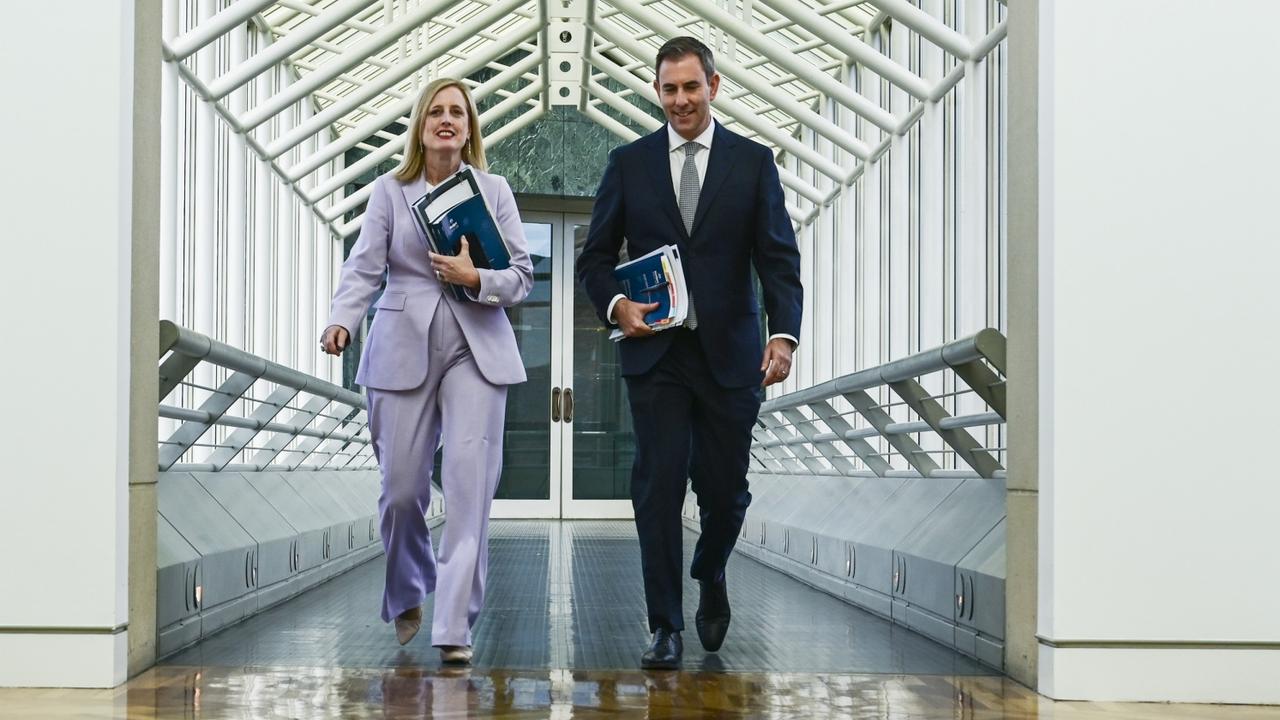
As already announced, the single parenting payment will now be available to single parents until their youngest child turns 14 rather than eight, providing 57,000 families with an extra $176.90 per fortnight.
There’s also $2 billion investment in a new hydrogen head start program, “so Australia can be a world leader in producing an exporting hydrogen power, while reducing our emissions in heavy industry here at home”.
“The government is making the biggest ever investment in Australia’s energy transformation. This budget allocates $4 billion to realising our future as a renewable energy superpower, bringing the government’s total investment to more than $40 billion,” he said.
“This includes part of our $15 billion national reconstruction fund to support the development of green industries, manufacturing and more, and a new capacity investment scheme that will unlock over $10 billion of investment in firmed-up renewable energy projects up and down our east coast.”
Funding worth $1.9 billion for First Nations health, housing, education, employment and other essential services and $250 million for a new Central Australia package to improve safety and provide more opportunities for more people in their communities was also revealed.
A new Powering Australia industry growth centre to help Australians businesses manufacture renewable technologies will also be funded, plus $286 million of investment in the creative sector, Chalmers said.
The government will also be investing $1 billion to help provide low-cost loans for double glazing and solar panels and other improvements that will make homes easier and cheaper to keep cool in summer and warm in winter, Mr Chalmers said.
Small businesses with a turnover of up to $50 million will be eligible for a $20,000 tax break if they invest in energy efficiency upgrades.

More training will also be funded with $3.7 billion allocated for a revamped five-year national skills agreement with the states and territories and 300,000 fee-free TAFE places to train Australians in critical and emerging sectors.
Mr Chalmers heralded the budget as one that delivers “historic investments in Medicare and the care economy, making it easier and cheaper for Australians to see their doctor”.
“It broadens opportunity by breaking down the barriers of disadvantage and exclusion,” he said.
“It lays the foundations for growth by embracing clean energy and investing in value-adding industries, people, skills, technology and small business. And it strengthens the budget, with a surplus forecast for this year with less debt and smaller deficits compared with recent budgets.”
He said the budget strikes a balance between spending restraint to keep the pressure off inflation, “while doing what we can to help people struggling to make ends meet”.
“We’ve also found $17.8 billion in savings and redirected spending – $40 billion over two budgets,” he said.
“We’ve limited annual real spending growth to just 0.6 per cent over five years. Because our first two budgets made such a firm commitment to responsibility and restraint, we are now forecasting a small surplus in 2022/23, which would be the first in 15 years.”
However, he warned that outside of the pandemic and the global financial crisis, the next two years are expected to be the weakest for global growth in over two decades and this will affect Australia.
“Our economic growth is expected to slow from three and a quarter per cent this year to 1.5 per cent next year before recovering to 2.25 per cent the one after,” he said.
“Despite this, our economy will continue to create jobs and unemployment is expected to remain low by historical standards – 4.25 per cent in 2023/24 and 4.5 per cent the year after.”
He forecast a $13.9 billion budget deficit in 2023/2024 and lower deficits across the forward years compared to recent budgets, leading to a $125.9 billion improvement in the budget over five years.
Mr Chalmers has been grilled on the ABC about whether the budget will push up inflation further as it injects more than $20 billion into the economy just in the next year.
“The restraint we’ve shown and the investments in the supplied side of the economy and the way we’ve targeted and staged our cost of living package is because inflation is the biggest challenge in our economy,” he said.
“This budget has been carefully calibrated and carefully designed to take the pressure off the cost of living, not add to inflation.”
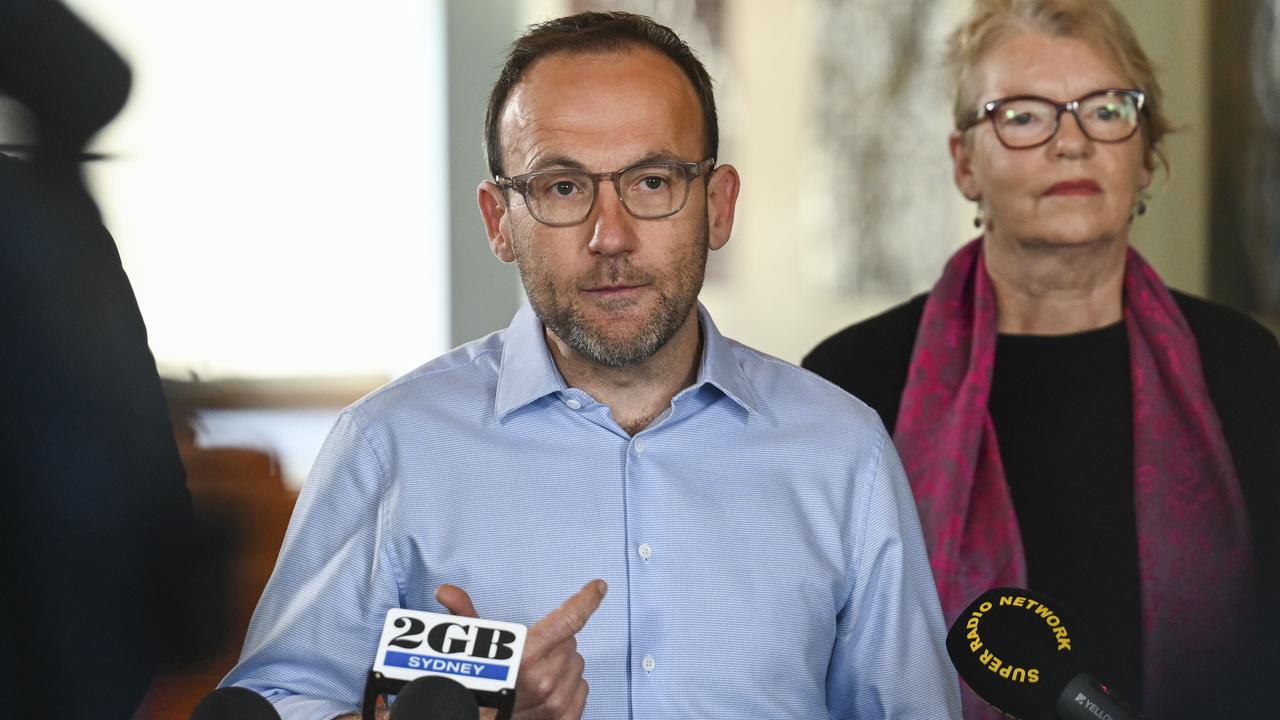
‘Betrayal of the people’
The government's budget has been slammed by The Greens leader Adam Bandt who accused Labor of “leaving millions in poverty while the wealthy and big corporations win big”.
“Labor’s second Budget is a betrayal of people who were promised that no one would be left behind,” he said.
“Budgets are about choices. Labor is choosing a surplus over supporting people who were counting on them.”
He said right now millions of people are living in poverty.
“Queues at foodbanks are growing, people are being forced to the brink of homelessness by skyrocketing rents, and many are forced to choose between paying the bills and putting food on the table,” he added.
“Labor knows this. Tonight, they have chosen a surplus over supporting people who counted on them. They’re continuing with Stage 3 Tax Cuts, nuclear subs, and handouts for wealthy property investors and fossil fuel corporations.
“If you’re on JobSeeker, you get an extra $2.85 a day. You’ll still live in poverty. Commonwealth Rent Assistance has gone up by $1.12 a day. Average rents have gone up 10 times that in the last year. And 5.5 million renters get nothing.”
Mr Bandt said the rumoured JobSeeker increase for over 55’s was also confirmed – they’ll get slightly more under these changes – but they will still languish in poverty.
“Everyone deserves to live with dignity, whether you’re 20 or 60,” he said.
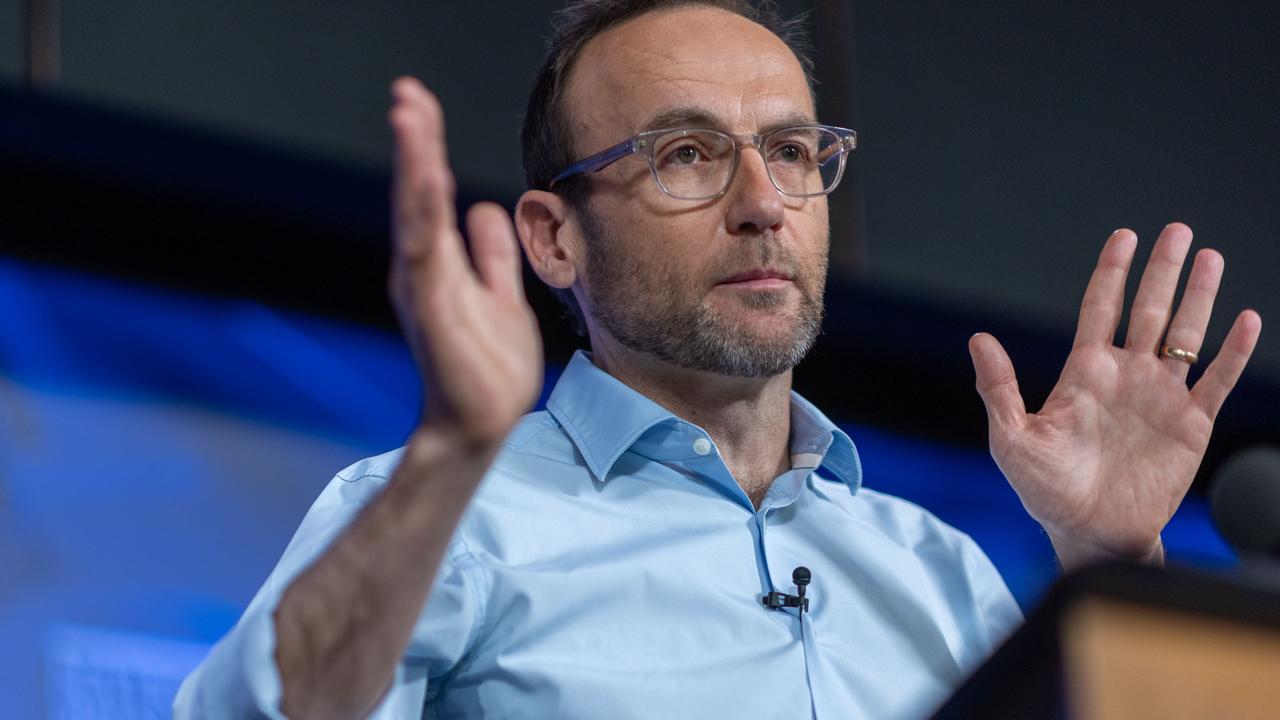
He was particularly critical that the controversial $254 billion Stage 3 tax cuts still loom over the budget and that over the next four years, they’ll cost $64 billion – four times Labor’s whole cost of living package.
“We’re also seeing the first spend on nuclear submarines. Labor is spending $9 billion to buy subs that will make us less safe. It’s a small down payment on the huge $368 billion cost. Imagine what that could be spent on,” he said.
“The gas corporations win big in this budget. Labor’s raising more from lifting student debt than from their changes to the gas tax! The Greens will fight to make the greedy coal and gas corporations pay their fair share.”
Mr Bandt also called out tax handouts worth $7 billion to “wealthy property moguls” while there was no new money to build affordable or social housing.
“Across the next decade, the NDIS will see a $74.3 billion cut. No budget should be balanced by cutting funds for disabled people,” he said.
“Offshore detention costs have blown out by $100 million – a 26 per cent increase! Locking up innocent asylum seekers is unnecessary, barbaric, and extremely expensive.”
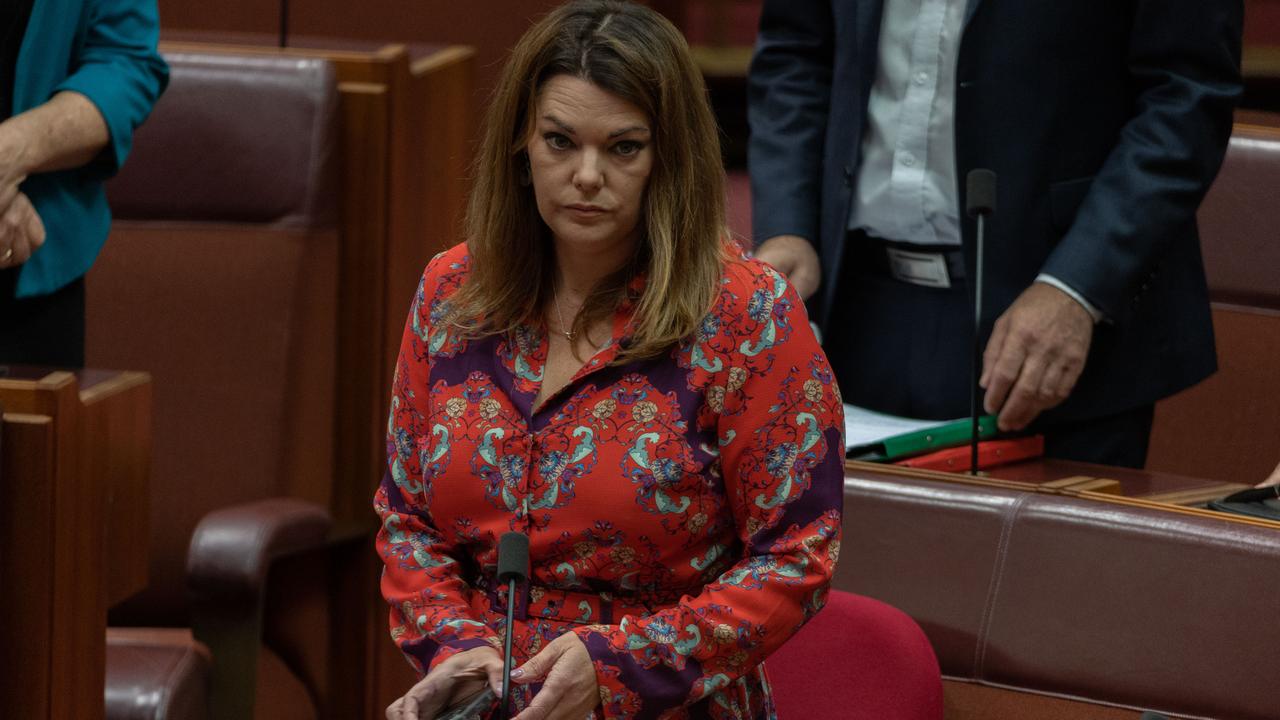
In an interview on the ABC, he doubled down on his criticism of the budget.
“It leaves millions in poverty while billionaires get tax cuts. A quarter of a billion dollars is spent on tax cuts for the very wealthy. It is a betrayal of representers and Jobseekers and people who are doing it tough,” he said.
“JobSeeker will get two. $2.84 per day. Billionaires like Clive Palmer get a $9000 tax cut. There is nothing for 5.5 million renters who don’t get rent assistance. For the ones who do, if they get the maximum, it is $1 a day. Rents in capital cities are growing 10 times faster. If the government had made the billionaires and big corporations pay tax, we could have funded a rent freeze and lifted people out of poverty.”
Disappointing that the Treasurer’s Budget night speech didn’t include the Environment at all.
— 💚🌠Sarah Hanson-Young (@sarahinthesen8) May 9, 2023
It’s just not a priority for this Government.
Meanwhile nature and wildlife continues to go extinct. #Budget2023
Greens Senator Sarah Hanson-Young also slammed the government for failing to prioritise the environment while “nature and wildlife goes extinct”.
The Climate Council welcomed temporary power bill relief and measures for some households and businesses to tap into renewables, but said the budget doesn’t meet the scale of the climate emergency Australia faces.
Amanda McKenzie, CEO of the Climate Council said this was a missed opportunity to permanently lower people’s power bills.
“To meet the climate challenge head on, Australia needs to urgently unlock the most affordable energy source available, renewables,” she said.
“Sure, this Budget provides renewables assistance to 170,000 households. But when you consider the critical challenge of electrifying everything with renewable power, backed with storage, for 10.8 million households, that barely gets us off the starting blocks.
“The Labor Government has demonstrated in this Budget that they want to support Australians who are struggling. Climate change makes every Australian vulnerable, so the scale of investment on climate action needs to match the task ahead of us.
“We can’t settle for a slow jog when the climate crisis calls for a sprint. Climate change is already reshaping our world, the government needs to fundamentally reshape budgets to tackle it.”
Human Rights Watch called the budget “madness” slamming the government for keeping fossil fuel subsidies at $9.4 billion while the Stage 3 tax cuts for high income earners are worth $254 billion over 10 years.
Madness. After #Australia’s so-called ‘climate election’ the @AlboMP government keeps fossil fuel subsidies at $9.4 billion #budget2023 https://t.co/2RJPDjmuTO
— Sophie McNeill (@Sophiemcneill) May 9, 2023
Homelessness Australia CEO Kate Colvin said the increase in the base rate of JobSeeker, Youth Allowance and Austudy was welcome but will be quickly eclipsed by further rental increases.
“The increase to income support payments means more desperately needed dollars will be in the hands of renters struggling to make ends meet. Every dollar helps. But unfortunately, many recipients will still be treading water and more rent rises are expected. The truth is, the housing crisis and pressure on homelessness services will continue,” she said.
“An opportunity was missed to invest in a rapid rehousing fund to acquire properties that could be almost immediately made available to homeless families.
“While the Budget includes a financial surplus, it has left a social deficit of unresolved homelessness that will create hardship for families and financial costs to the community in future years.”

National Union of Students president Bailey Riley also hit out at the decisions made in the budget and said young people would be left extremely disappointed.
He said the increases to Jobseeker and youth allowance, plus rent assistance were just “crumbs” and that young people on the payments were still “living far below the poverty line” and were “being left to fend for themselves”.
Shadow treasurer Angus Taylor told the ABC said the budget had failed to “take pressure off inflation”.
“A typical family with three kids will be $25,000 worse off a year under this budget than they were,” he said.
“I tell you, there will be a lot of people out there listening to this or watching this now who are feeling worse off than they were a year ago and this is not a budget that will alleviate that situation.”
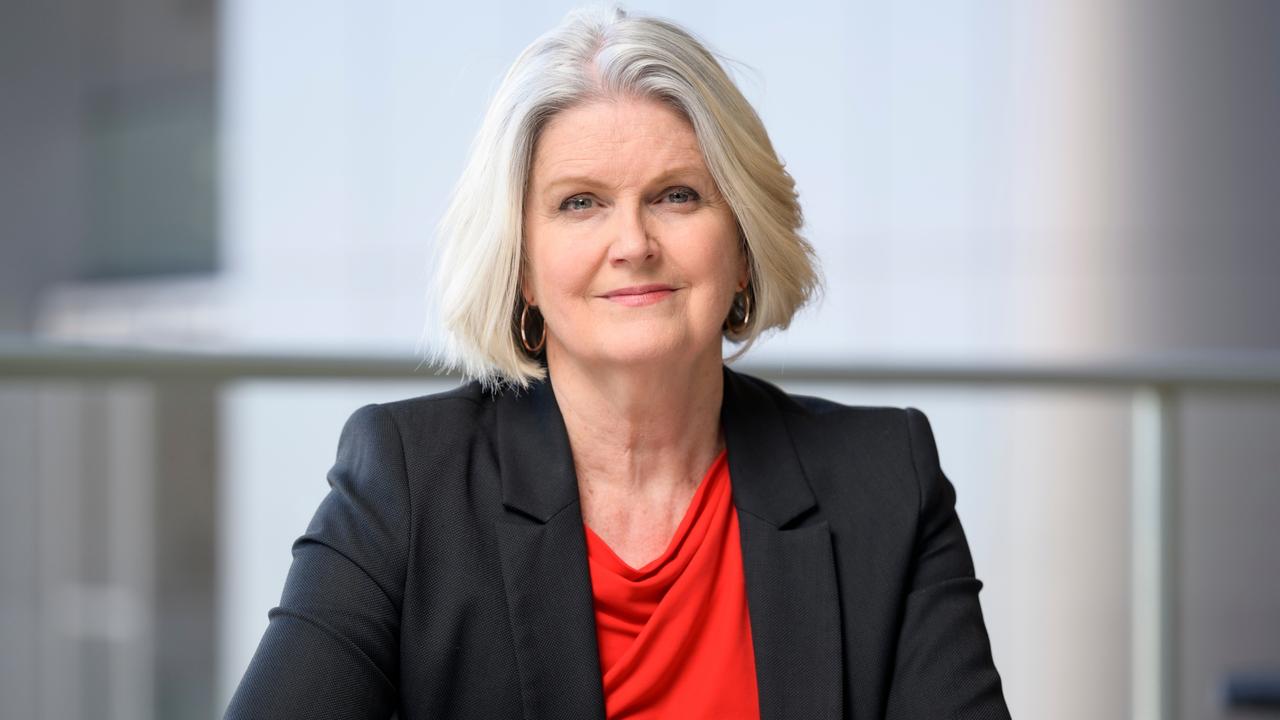
Australian Council of Social Service chief executive Cassandra Goldie agreed the jobseeker increase isn’t enough and said the payment will keep people in poverty.
She said they would still have over one million people who will not know if they can feed themselves three times a day.
“The real increases to base rates of JobSeeker, Youth Allowance, and Rent Assistance will still leave more than one million people in poverty, unable to cover the basics,” she said.
“Whilst every dollar counts, the $20 a week increase to JobSeeker is well below the Economic Inclusion Advisory Committee’s finding that JobSeeker needs to rise by at least $128 a week to ensure people can cover the basics.
“Tonight, JobSeeker is still the lowest unemployment payment in the OECD, despite Australia being one of the wealthiest countries in the world.”
Independent Senator for the ACT David Pocock told Sky News’ that the $40 per fortnight increase to the unemployment benefit was laughable and embarrassing.
“This is something that is keeping people in poverty,” he added.
Chief executive officer of the Australian Academy of Technology and Engineering said the budget didn’t go far enough with a “disappointing drop” in government research and development in clean energy tech.
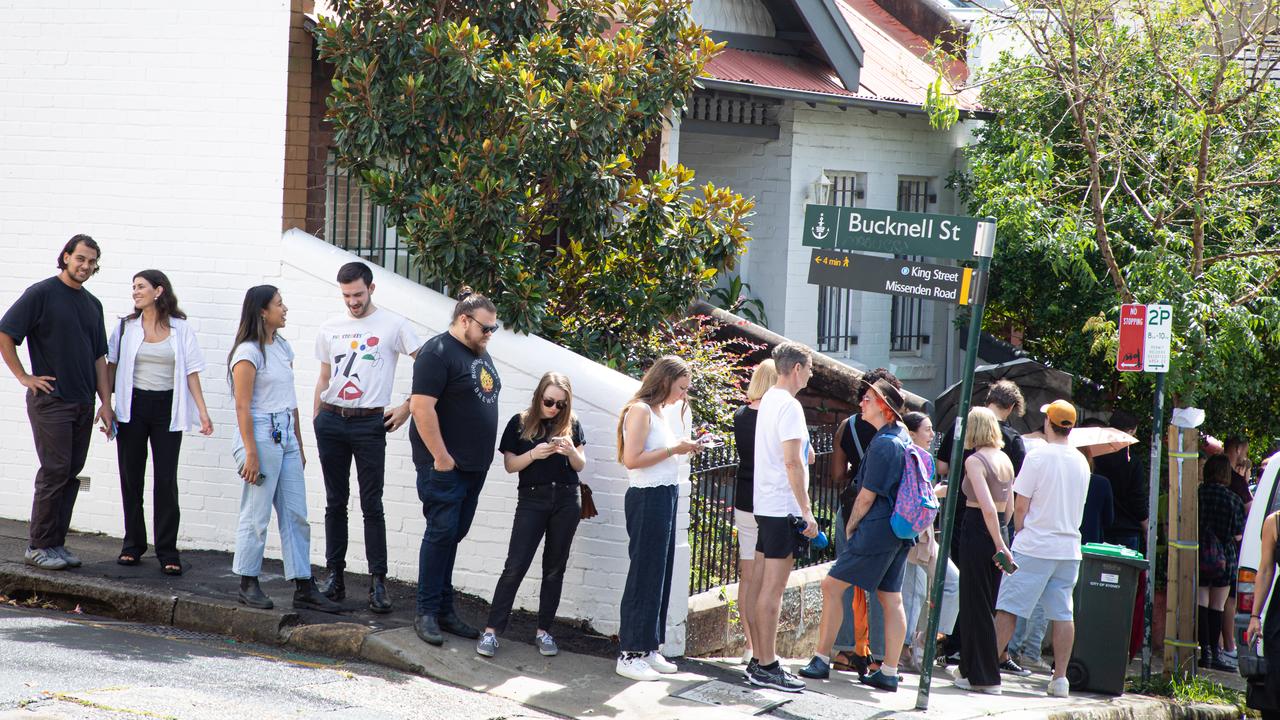
‘It doesn’t help anyone’
Every dollar of budget surplus is a dollar not spent on lifting people out of poverty.
— Penny Allman-Payne (@senatorpennyqld) May 9, 2023
It doesn't help anyone.
There’s nothing responsible about leaving people behind. So... 👇 pic.twitter.com/wrup5iEWuI
Greens Senator Penny Allman-Payne hasn’t held back on her thoughts on the budget surplus in a brutal tweet.
She said “every dollar of budget surplus is a dollar not spent on lifting people out of poverty” and a surplus doesn’t “help anyone”.
Greens leader Adam Bandt has also called for the Australian government to help out the most vulnerable and said welfare measures are not fuelling inflation.
“Giving people who are doing it tough a bit of extra money so that you can put a banana in your kid’s lunch box is not what is driving inflation,” he told the ABC.
“If the government really wants to take inflation, tackle rising power bills, tackle rising rent – look at the massive profits the banks and these big corporations are making off the back of people’s pain.”
He said the $4 billion surplus should be helping with the cost of living crisis.
“Under Labor, people are sleeping in their cars and tents but the budget is in surplus,” he added.
“One in six children in this country are in poverty but Labor is crowing about delivering a surplus.
“Every dollar of a surplus is a dollar less to lifting people out of poverty.
“We are in a crisis and a surplus does not help you pay the rent. A surplus does not put food on people’s table.
“A dollar that goes to surplus is a dollar that should be spent lifting people out of poverty and deal with the cost-of-living crisis.”
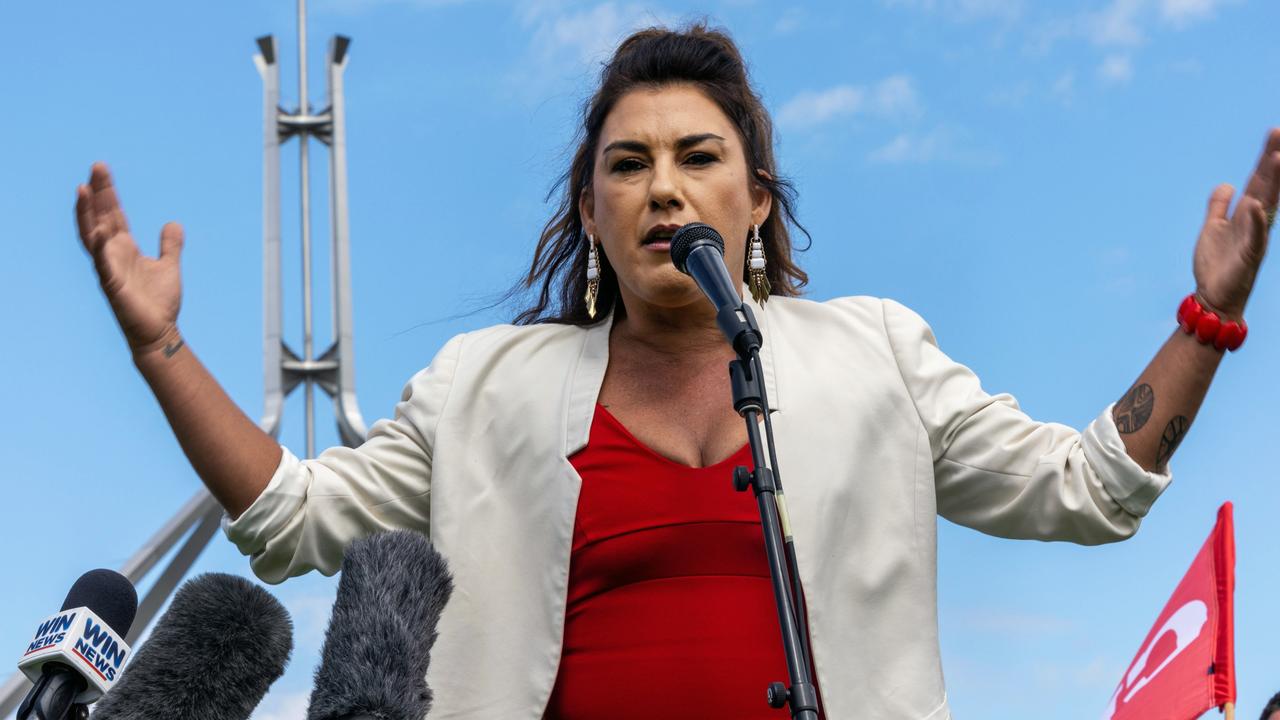
‘Shameful’: Thorpe rips Albo over budget measure
Independent senator Lidia Thorpe has hit out at the government and said it is “shameful” that Labor is trying to rush its $10 billion signature housing policy through the Senate.
“Everyone deserves to live in a good quality, safe and affordable home. Labor is ignoring calls from community members and experts to address the housing crisis. Today, before negotiations have finished, it is trying to push through its inadequate Housing Australia Future Fund,” she said.
“These bills do not go far enough to address the disgracefully high rates of homelessness in this country. I asked for more total funding to address this crisis, and a minimum spend on First Nations housing to build a unified, strong and self-determining housing sector.
“These demands have not been met, and it is shameful that the government is trying to rush these bills through before an agreement has been made.”
The proposed fund would build 30,000 affordable homes over the first five years with 20,000 for social housing properties.
From this 4000 of those would be allocated for women and children fleeing domestic violence, and for older women on low incomes at risk of homelessness, while another 10,000 affordable housing properties would be made available for frontline workers
The $10 billion would also be invested with the earnings spent, up to $500 million a year, on affordable and social housing projects.
Senator Thorpe added First Nations people had “been made homeless by the colonial project on our own land and make up more than 20 per cent of the nation’s homeless population”.
“This is a direct result of government inaction,” she said.
“Today the Labor government has the chance to do something about it.”
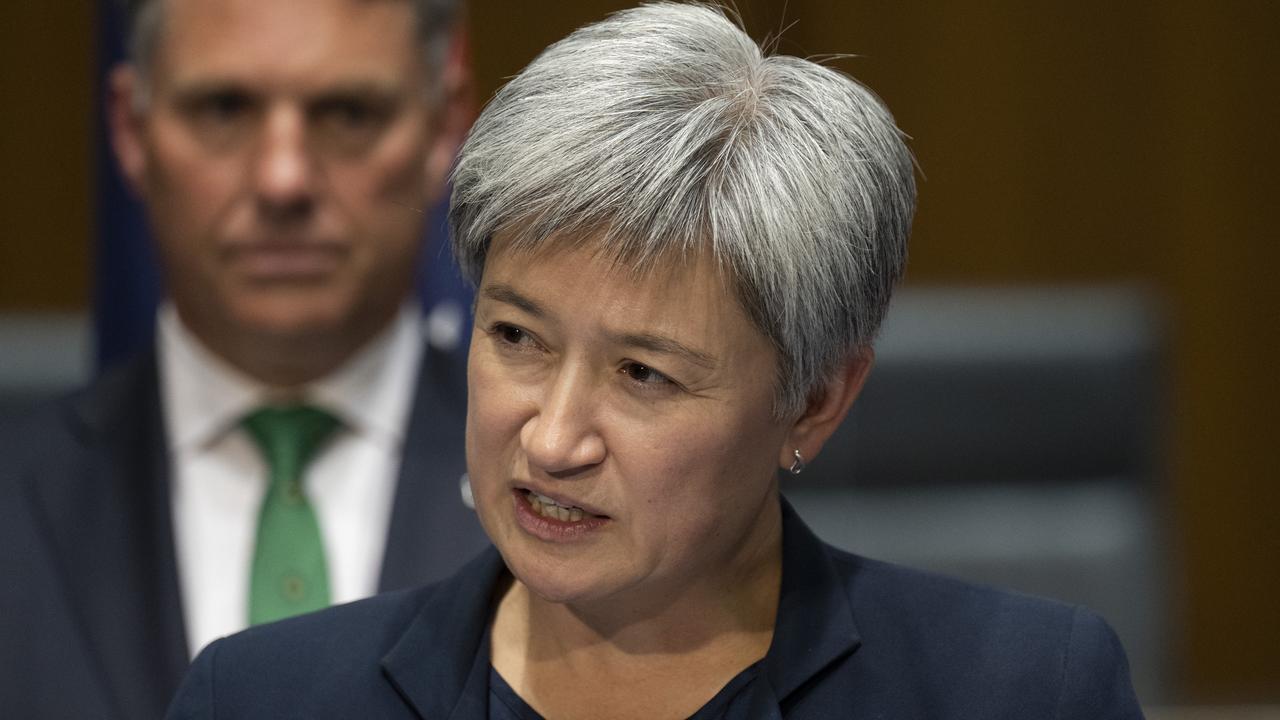
Meanwhile, the Foreign Affairs Minister Penny Wong has accused the Greens of orchestrating a “political stunt” by continuing to oppose the fund.
The Greens attempted to delay debate of the proposed bill.
“You’ve had this private senator’s bill in this parliament since November, and you have chosen not to bring it on for debate at the appropriate time,” said Senator Wong, the government leader in the Senate.
“You’ve had time to debate this bill if you cared about it that much, but no, you want to use it as cover for not debating a $10 billion investment in Australian housing.
“You have tried to continue to block more investment in affordable housing in this country, and this is cover for it.
“The government wants to debate the housing bill because it was an election commitment and we actually want more affordable housing in this country, and we have the Greens and Liberals teaming up to oppose more investment in housing.
“Who would have thought the Greens would be lying up with the Liberals to oppose more affordable housing?”

Debt expected to be slashed earlier
Before all the details drop at 7.30pm, the government is feeding out small bits of good news to get the jump on coverage.
It has revealed that gross debt is predicted to peak five years earlier and less than it was forecast in October.
“The budget will show because of the government’s commitment to return most revenue upgrades to the budget, gross debt is projected to be almost $300 billion lower by the end of the medium term (2033-34), saving $83 billion in interest costs over that period,” a statement from the Treasurer’s office said.

‘Bits people don’t like’
Finance Minister Katy Gallagher has defended returning the budget to surplus despite many Aussies doing it tough right now.
She said it wasn’t a “matter of celebrating” but instead the government has its eye on the “long term”.
“The upward revisions to revenue and the improved bottom line is good. But it is a good story for the country because a budget is about investing in the future of our country and supporting people who are doing it tough,” she told ABC’s Afternoon Briefing.
“I think they expect their government to manage their budget responsibly and that is what we have sought at the outset to do with the budget where we can make sensible investments, we do that and also have our eye on the long-term.
“That it is about getting the budget on a better footing so we can create the opportunities and invest in people for the future.”
She added that the government needed to “make sure we are a good spot when the next emergency comes at the budget” so they are able to respond to it.
The finance Minister also criticised shadow treasurer Angus Taylor’s claim that a drover’s dog could have delivered a budget surplus and said the comment “reflects poorly on him” considering his government did not deliver one out of their nine budgets.
She conceded “there will be bits people like and don’t like and think we should have done more of, and think we should have done less of” but hopes Aussies will see they are investing in the future, giving people in need an extra hand and managing the budget in the best interests of the country.
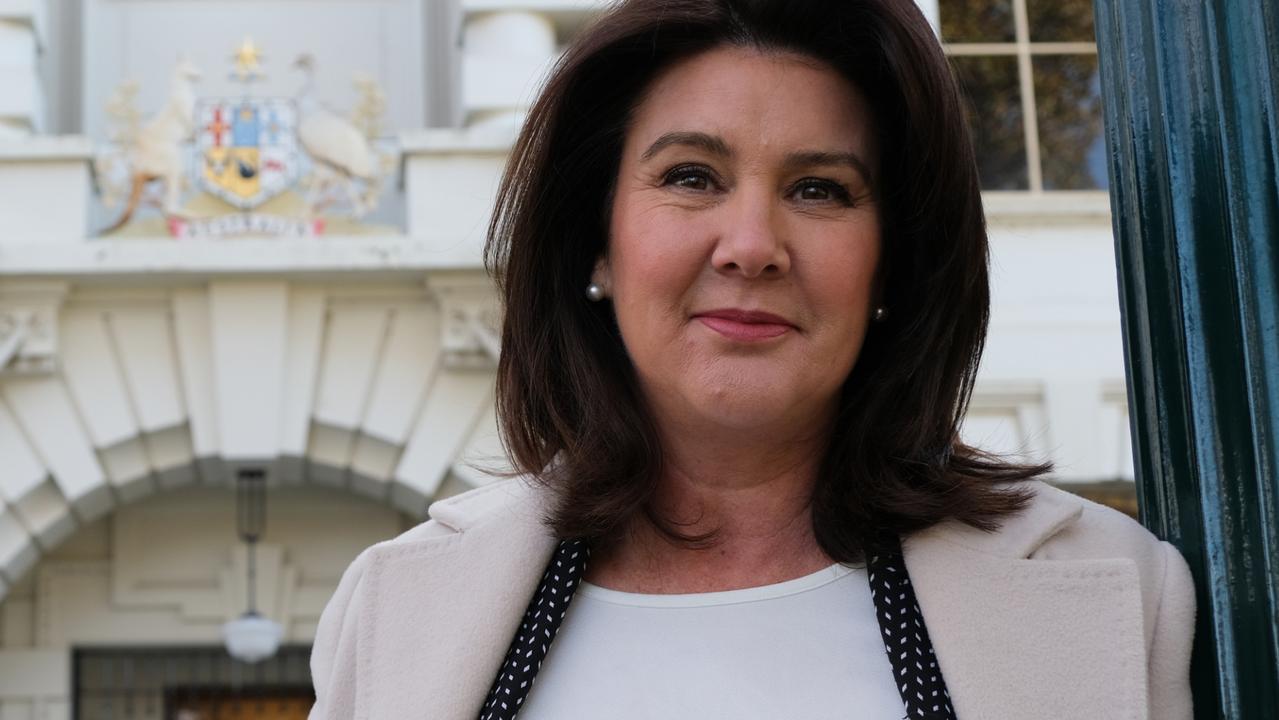
‘The great thief in the night’
Shadow finance Minister, Jane Hume, has warned the expenditure side of the budget could be hijacked by “the great thief in the night” – stubborn inflation which remains dangerously high.
“What we are afraid of now is that the expenditure side of the budget is not under control.
What we want to see – the real test for Jim Chalmers – is not delivering a one-off surplus, but as a sustained surplus into the future,” she told ABC’s Afternoon Briefing.
“Because that is the way that you can grow the economy and also rein in inflation which is the great thief in the night right now – eroding people savings, eroding their purchasing power and reducing the standard of living.
“That needs to be the number one priority of this government bringing inflation back under control.”
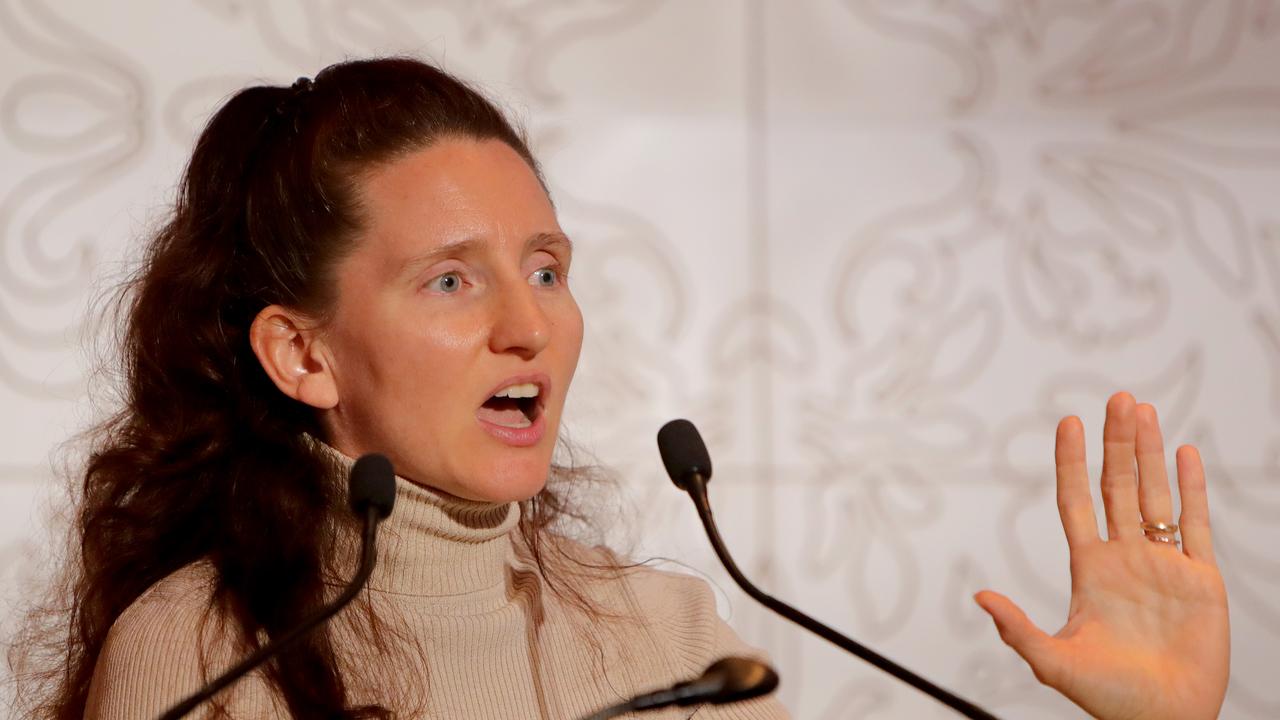
‘Money-grubbing imbeciles’: Economist’s spray
UNSW economist Gigi Foster has rubbished suggestions that the government can hand out $14.6 billion in cost-of-living relief while also driving down inflation.
Speaking to 2GB’s Ben Fordham, Professor Foster said Treasurer Jim Chalmers was “between a rock and a hard place” but argued it was “insulting to Australians” to simply offer them cash handouts to stop complaining.
“People are feeling the pinch and they do want cost-of-living relief,” she said.
“He’s basically putting out messages that are going to win votes right now – you’re going to get a handout on electricity, a handout on childcare. How is that not going to be inflationary?
“Only if the government manages to rein in enough spending elsewhere. He’s made these vague indications that he’s going to reprioritise across the other line items … does that mean they’re going to say for example, I don’t know, let half of government employees go? It’s really not an easy thing to claim.”
She noted that “if you give $10,000 extra for every aged care worker … then those people are going to have more money to spend and presumably they‘re going to be spending it”.
But she added that the root of the cost-of-living crisis was the Covid lockdowns and billions of dollars in handouts, saying it was “disingenuous for there to be no admission that the current economic woes lie at the feet of successive Commonwealth governments”.
“This inflationary problem is not something we couldn’t predict three years ago,” she said.
“The whole reason we have it is because of government actions. This is the number one reason why we have this inflationary situation now, and to be told at this moment, ‘Oh, I know you’re suffering, here’s some more money’, I mean, it’s insulting to Australians. What are we, money-grubbing imbeciles? Is that what the government really thinks?”
Prof Foster said there was “no addressing of structural issues in the Australian economy in this budget”.
“He’s addressing the symptoms, not the causes,” she said.
“Why is it so difficult to buy a new house for a young person? Why is it so difficult to find quality, affordable childcare? Why is it so difficult to find quality aged care for your parents?
“These are the things he should be asking and then addressing those structural problems, rather than just giving people more money in the hope they’ll stop complaining.”

Prime Minister hits back at attacks
Question time has kicked off in parliament and Prime Minister Anthony Albanese has fired back a cheeky response to a query from the Opposition about core inflation.
The deputy Liberal leader Sussan Ley said core inflation in Australia is higher than in countries like the US, UK and Canada and it’s “hurting” people.
She asked Mr Albanese to use “his economics degree” to explain why the government’s only answer has been to announce a series of budget measures “to spend more and tax more”.
“I do have an economics degree, the deputy leader of the opposition – I encourage her to remind people at every opportunity,” Mr Albanese hit back.
“In case she was wondering it was from The University of Sydney and I can bring it in here and perhaps you can tablet and frame it and put it up in your office.
“Because indeed, I do use it each and every day. I use it to know that indeed, inflation had taken off well before Labor took office. Indeed the largest quarterly rise this century was guess when? Guess when? March 2022. The largest rise of inflation in any quarter of the century March 2022.”
Mr Albanese said the highest inflation rate happened on the Liberal’s watch and accused the Morrison government of ignoring “Treasury warnings and it used its final budget to unleash a desperate vote buying spending spree”.
“They added fuel to the inflation fire. A former government sourced described it as ordering the entree, main and the desert,” he added.
“It was all there, all the one off payments, the cash payments were there. Not worrying about the impact.”
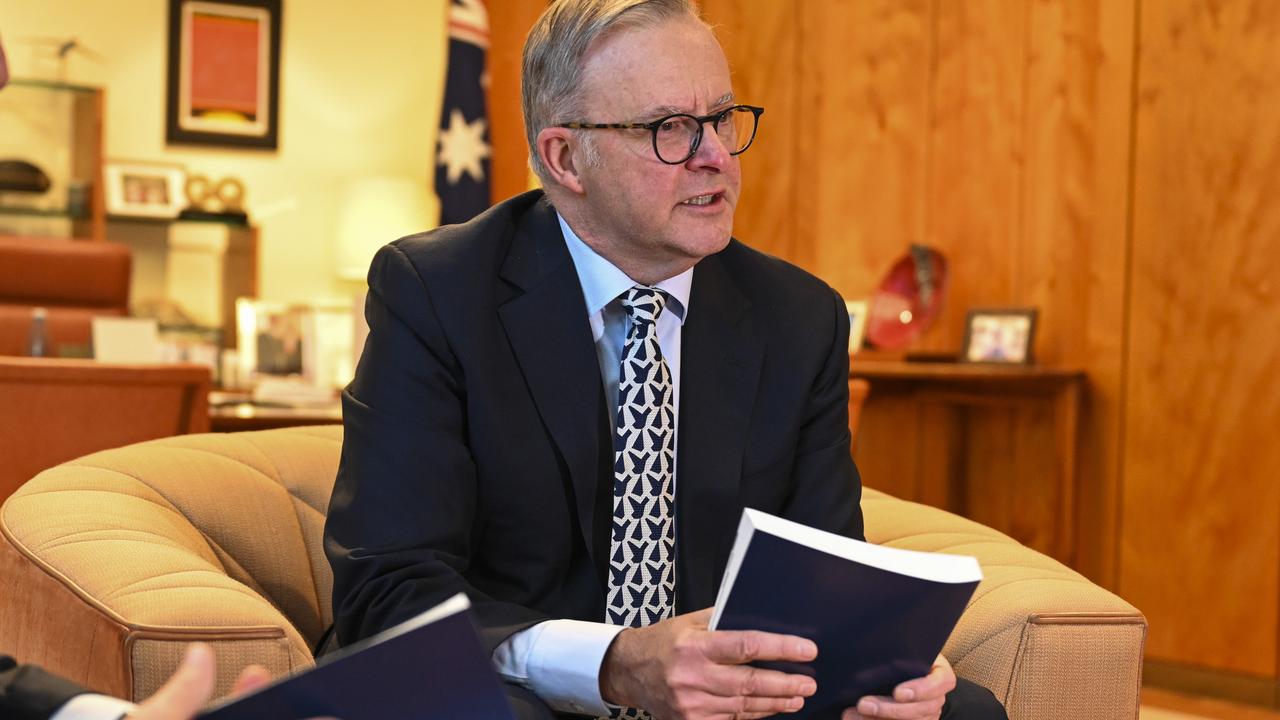
Cost of living crisis ‘crippling’ Aussie families
Politicians from the Opposition are rolling out stories of family’s facing huge hardships from the cost of living crisis in Question Time, which is “crippling” Aussie families.
The LNP MP for Fisher, Andrew Wallace, talks a husband and wife with three kids from his Sunshine Coast electorate who are working five jobs between them seven days a week to make ends meet.
Mr Albanese said the government was targeting wages, which included $11 billion that will be in tonight’s budget for people in the aged care sector and Australians who “work damn hard”.
“They do it tough to put food on the table for their families and to aspire to a better life for their kids,” he said.
“One of the things that you can do, of course, to improve people ‘s situation is to get wages moving again.”
Meanwhile LNP MP for Flinders, Zoe McKenzie said a family with a $750,000 mortgage is now paying $1723 more every month compared to May 2022 “because this government hasn’t taken any action to reduce inflation”.
But Mr Albanese hit back and said interest rates sit at 3.85 per cent compared to 6.75 per cent when Opposition leader Peter Dutton was assistant treasurer.
The Prime Minister has told parliament the federal budget to be announced tonight will be “about helping people struggling to make ends meet while not adding to inflation”.
“It will be about providing affordable, effective and targeted cost of living relief, delivering historic investments in Medicare and health, supporting vulnerable Australians, growing the economy and strengthening the budget to make our finances more secure for the future,’’ he said.
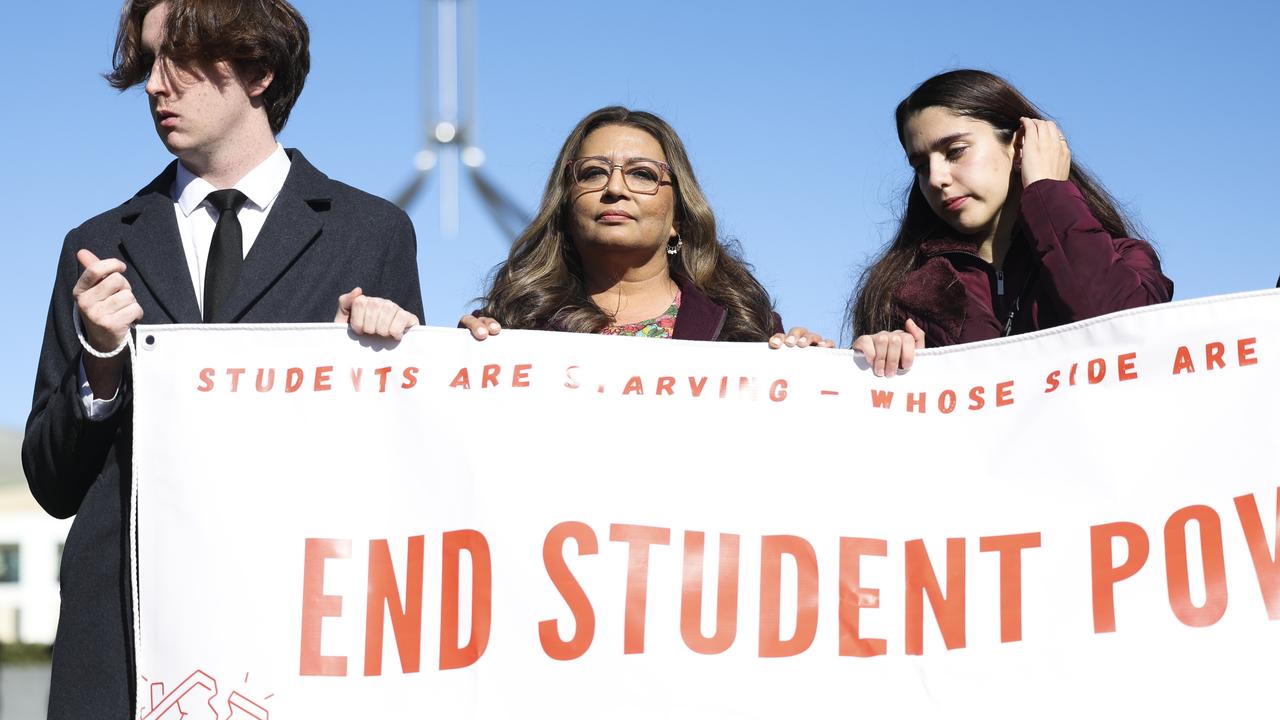
‘A budget for the rich’
The government’s budget has been slammed by the The National Union of Students (NSU) as a “slap in the face” for students and the poor.
It has held protests outside of Parliament House and called for student debt to be wiped and changing the age of independence from 22 to 18.
“So that’s when you’re considered independent from your parents, and it’s a bit weird, because when you’re 18 you can drink, you can drive, you can legally be arrested, you’re basically considered an adult except for Centrelink. So over 450,000 students are locked out from Youth Allowance and Austudy payments because of the age of independence,” said President of the National Union of Students, Bailey Riley.
The NSU said there has been a failure to address student poverty, with NUS national education officer Xavier Dupe calling for JobSeeker payment to be hiked to $88 a day and for rent assistance to be raised by 50 per cent.
“Labor’s budget is a slap in the face for students and the poor. It’s a budget for the rich,” he said.
“When it comes to addressing poverty, the government claims it ‘can’t fund every good idea’. But clearly Labor are happy to grant $243 billion in tax cuts for the rich.”
Mr Dupe was particularly critical of the increasing spend on military funding and cutting taxes for the rich, while students struggle with the cost of living crisis.
“Students are already hit hard by the cost of living crisis and HECS indexation means that students are also being saddled with a lifetime of debt,” he said.
“Students won’t just stand by while Labor screws over ordinary people. We’re going to fight this budget on the streets across Australia.”
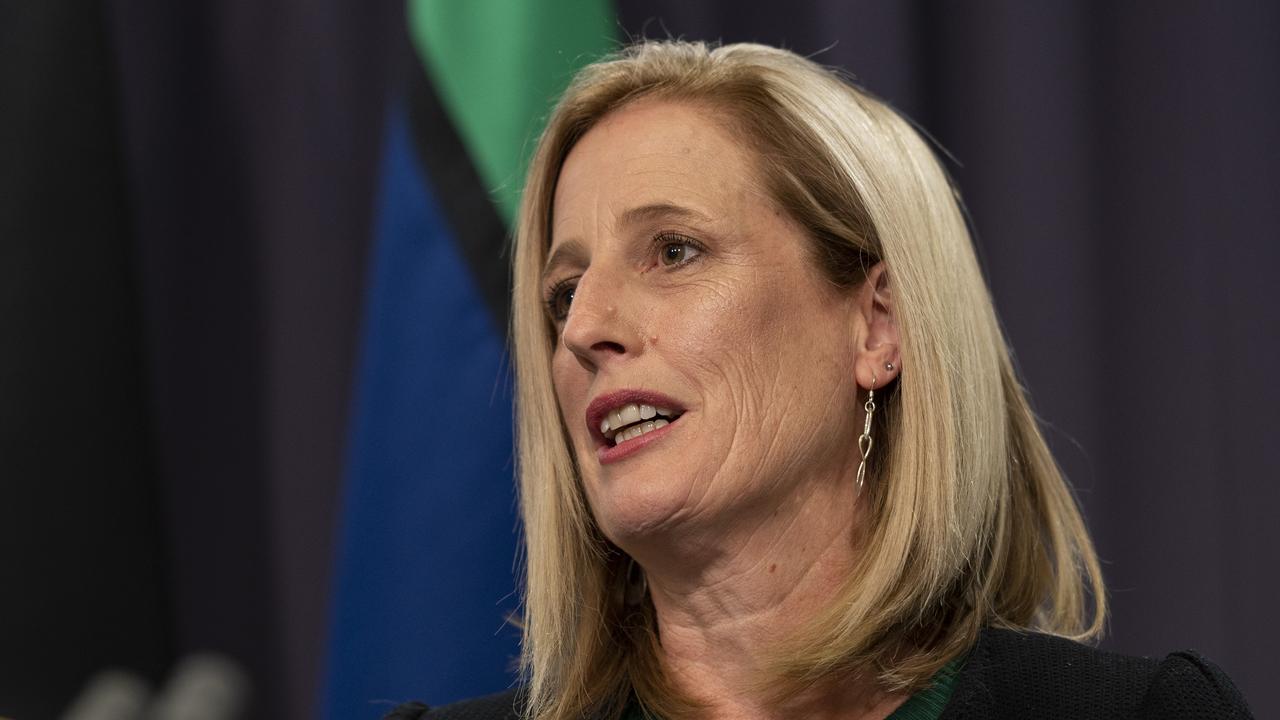
Budget puts women ‘front and centre’
Finance Minister Katy Gallagher says the budget puts women “front and centre”.
“You’ll be hard pressed to find a budget that does as much heavy lifting in the interests of women’s equality than this budget, building on October,” she told reporters.
“The PM, the Treasurer, myself, we said women would be front and centre of our budget decisions and I think you’ll see that tonight.”
The Treasurer agreed that “it’s a great budget, a great women’s budget statement — always want to give that a plug”.
“Month and months of work, a lot of collective effort in this and I think it’s going to be a really responsible budget and it does the right thing by people in the here and now but it also invests in the future,” he said.
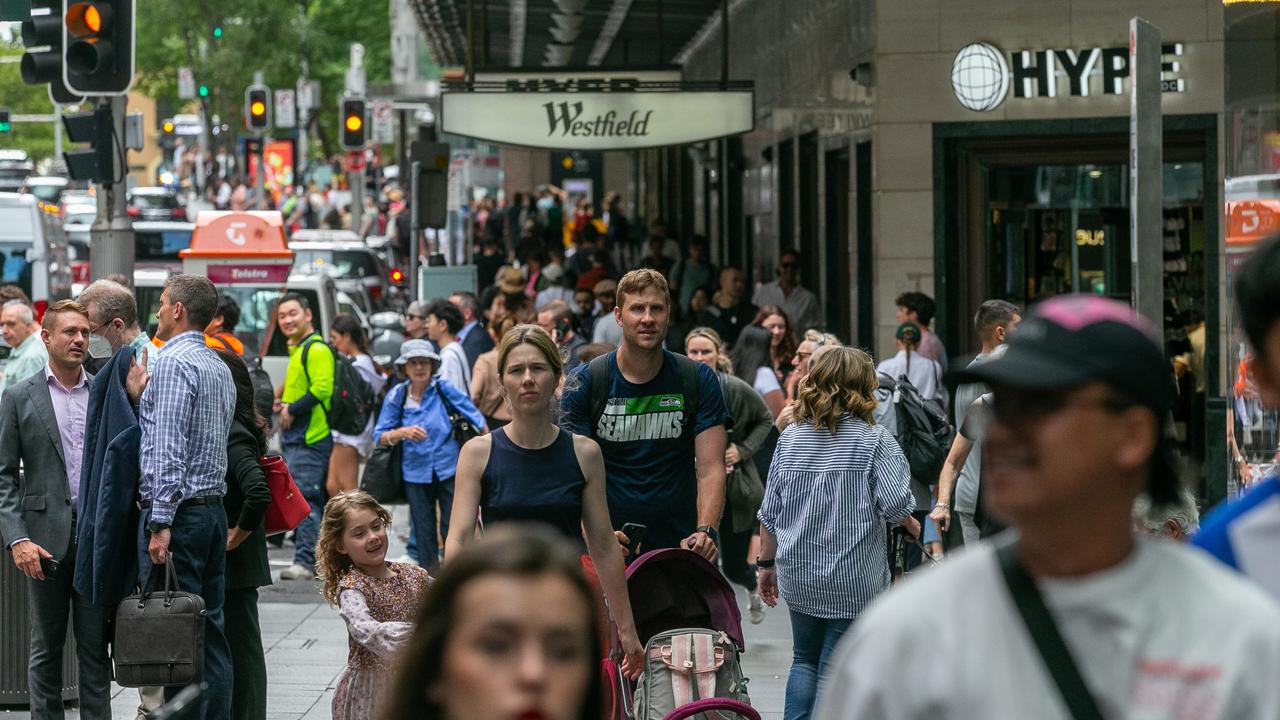
‘Where is the plan’ for 715,000 migrants?
Shadow Immigration Minister Dan Tehan has clashed with ABC Radio host Patricia Karvelas over immigration numbers.
The RN Breakfast host was grilling Mr Tehan – who has criticised Labor for bringing in 715,000 new migrants – pointing to analysis by economist Chris Richardson that without migration Australia would currently be in a recession.
Mr Tehan replied by highlighting comments from AMP Capital economist Shane Oliver that those migrants will require 200,000 extra houses to be built “and there is no sign of that”.
“Where is the plan to deal with the infrastructure that’s required?” he said.
“Where is the plan to deal with the pressure it’s going to put on our health services across the country? What the government needs to be doing is bringing in young skilled workers to deal with the workforce shortages, that is not happening.”
“Do you accept that migrants are helping us avoid a recession in this country?” Karvelas asked.
“You bring in young skilled workers that are addressing workforce shortages, that helps your economy,” Mr Tehan said. “If you bring in 715,000 people without a plan, it actually is a negative to your economy.”
Earlier in the interview Mr Tehan dismissed tonight’s budget surplus as a “one-off” and warned Australians were going to be taxed “like never before”.
“It’s based on higher taxes and what we’re going to see ultimately is bigger spending over the forward estimates,” he said.
“It’s a one-off budget surplus based on the highest tax take that this nation has seen since 2008 when Wayne Swan was Treasurer. So what we’re seeing is a traditional Labor budget – you’re going to be taxed like you’ve never been taxed before and we’re going to see spending in the out years which will see the budget plummet back into deficit again.”
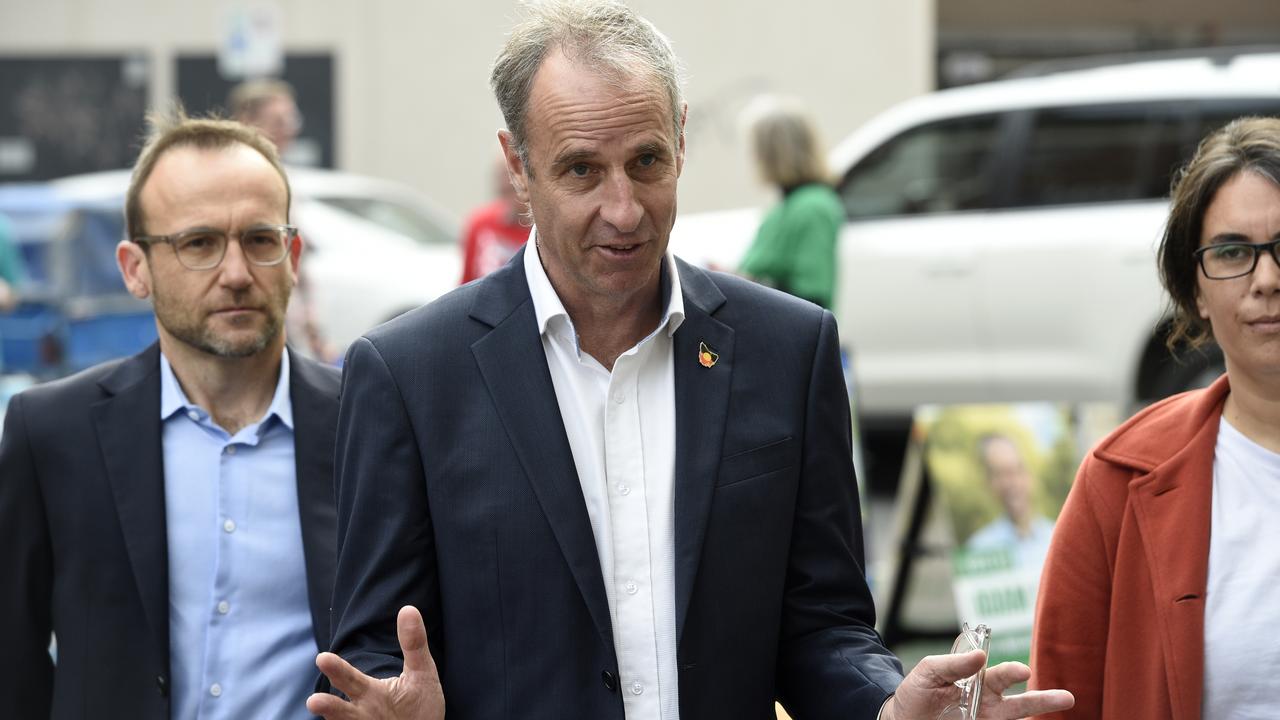
Greens say surplus is ‘political’
Greens Treasury spokesman Nick McKim says the government should have done more to help vulnerable people rather than gunning for a “rounding error” $4 billion surplus.
“This is just a political surplus so Jim Chalmers can say he’s engaged in budget repair and he’s a responsible economic manager,” he told ABC Radio’s RN Breakfast.
“But the people who are really struggling in Australia, they don’t care about a surplus, they’re worried about how they’re going to put food on the table for their kids tomorrow night, how they’re going to afford the rent. We’ve seen renters and mortgage holders getting smashed by interest rate rises, we’ve seen real wages declining at the fastest rate on record.”
Mr McKim suggested the Treasurer was “going to sprinkle a few hundreds and thousands on top but it’s basically the same cake we’ve been served up for the last decade”.
He dismissed the notion of paying down debt as “a real issue in the Prime Minister’s mind, but that is not a real issue in the minds of Australians who are really struggling”.
“The Prime Minister and Jim Chalmers can talk about budget repair all they like, and they can talk and grandstand about their surplus, but this budget has still got the stage three tax cuts for the top end baked in, the AUKUS subs, fossil fuel subsidies, they’re all still there,” he said.
Mr McKim reiterated that “the surplus is political, there’s no doubt”.
“Four billion dollars, in the context of the overall totality of the federal budget, that is a rounding error, it’s parking meter change,” he said.
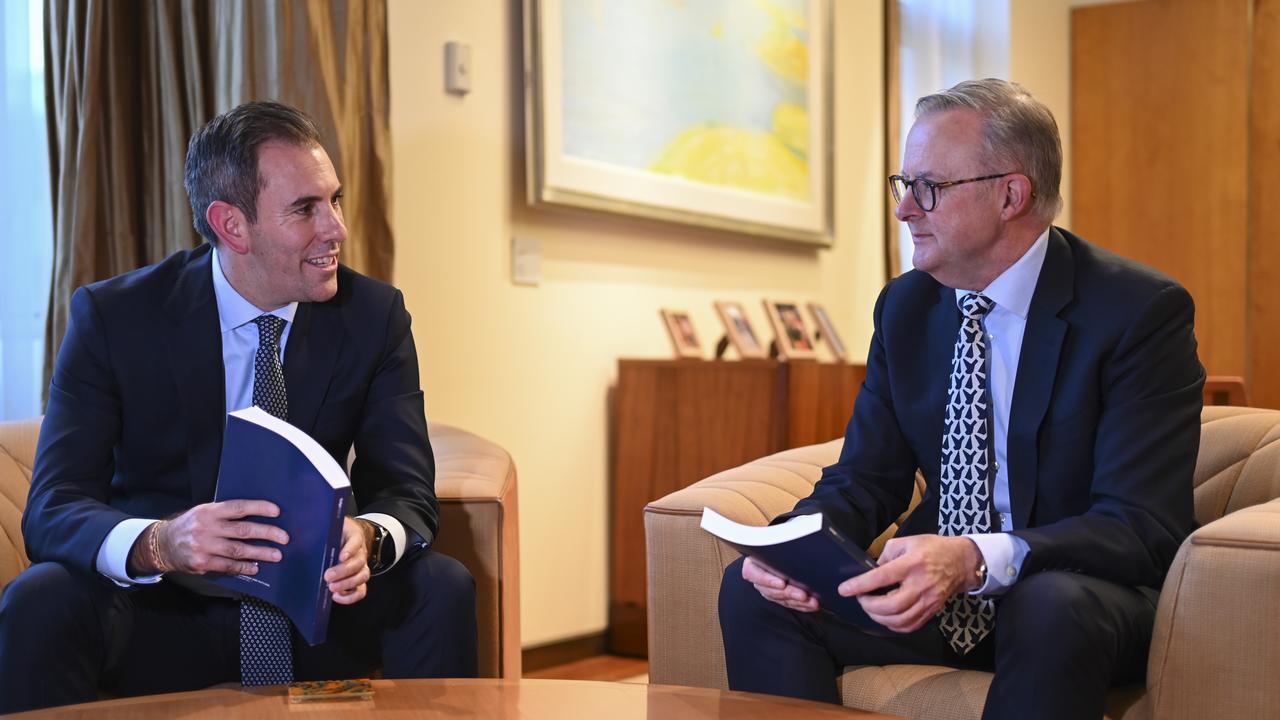
Cost-of-living relief ‘broader’
The Treasurer held a press conference in Canberra earlier to tout his “responsible budget which helps people doing it tough and sets Australia up for the future”.
“It’s carefully calibrated to address cost-of-living pressures in our communities, rather than add to them,” he said.
“It’s a budget in Labor’s best traditions but also Australia’s best traditions — help for the vulnerable, broadening and extending more opportunities, and investing in the future of our country and its people. In dollar terms, it will show the biggest budget turnaround on record, as a consequence of our responsible economic management.”
Mr Chalmers wouldn’t go into specifics but said the cost-of-living relief revealed tonight would be “broader than what has been speculated on”.
“It has a number of elements,” he said.
“It won’t all be limited by age or other distinctions. There’s help for the most vulnerable but also for middle Australia as we get through these difficult times together and lay the foundation for a much better future.”

‘Not long’: $500 handout slammed
A Balmain small business owner has warned that “everybody is really worried” about the state of the economy, saying she is unimpressed with the reported $500 power price relief in the budget.
Salon owner Deborah Bradshaw told Nine’s Today the skyrocketing costs including energy and rent were making it “tough” and that $500 would last “not long”.
“I have had the business for 15 years,” she said.
“Even during Covid, I kind of felt we were getting relief and some help. We kind of felt we were all in it together. This time I don’t. I have not been this concerned about mine and all the small businesses around me for a very long time … Seeing businesses close down is frightening.”
‘Risk’ cash splash will drive inflation
Shadow treasurer Angus Taylor has stressed the need for responsible cost-of-living relief that doesn’t add to inflation.
Speaking on ABC Radio, Mr Taylor was asked if the Coalition would support Labor’s $14.6 billion cost-of-living package.
“Well, economists will consistently say that cash splashes not the way to address inflationary pressures and in fact, if you have cash splashes if you have handouts, then the risk is that you’ve got a lot of people paying for others handouts, and that’s the real risk we have right now,” he said.
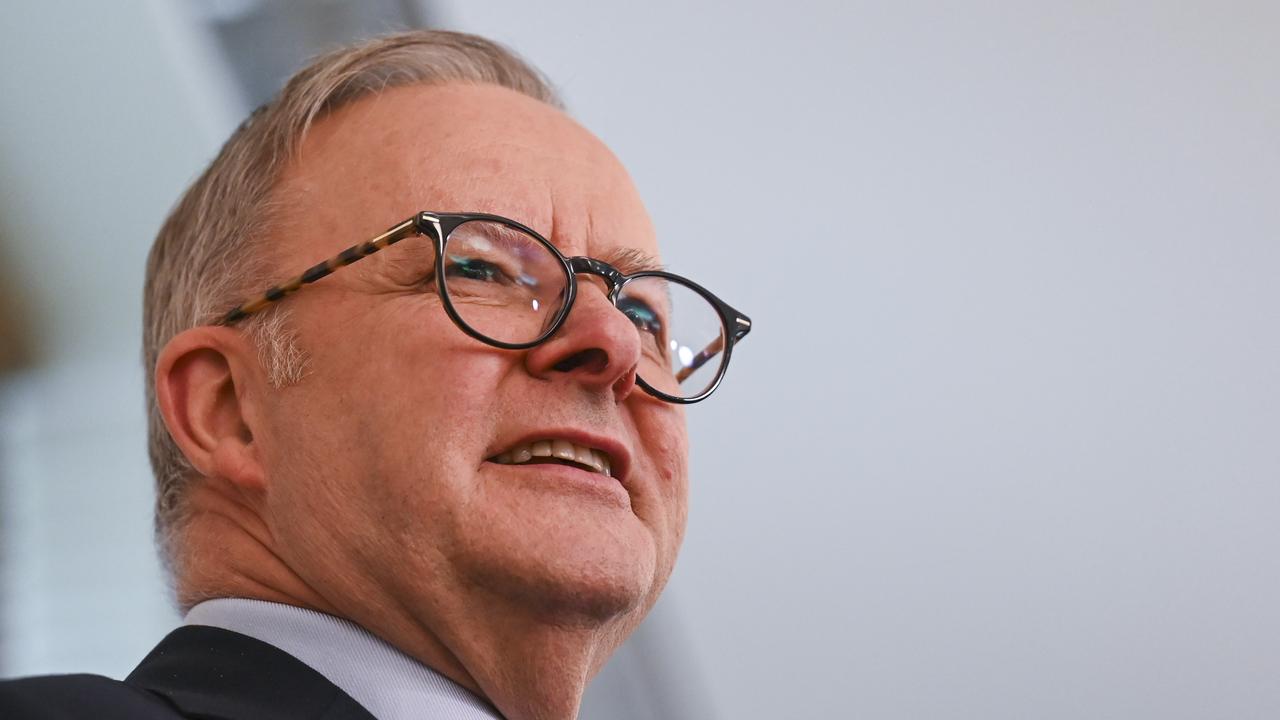
Albo reveals surplus priority
Prime Minister Anthony Albanese appeared on ABC Radio Sydney this morning to discuss the budget.
While he wouldn’t confirm reports of a $4 billion surplus, he said “we’ve got to pay down debt” when asked what the government would do with it.
“We, of course, haven’t confirmed what’s in the budget … but we inherited a trillion dollars of debt, and what that means is that the interest rate bill goes up on paying,” he said.
Everything we know so far
Many of the key announcements have already been made ahead of the budget.
From cost-of-living relief and pay rises for aged care workers, to tax hikes on cigarettes and a crackdown on vapes, the budget contains the usual mix of carrots and sticks.
You can read all about it here.





